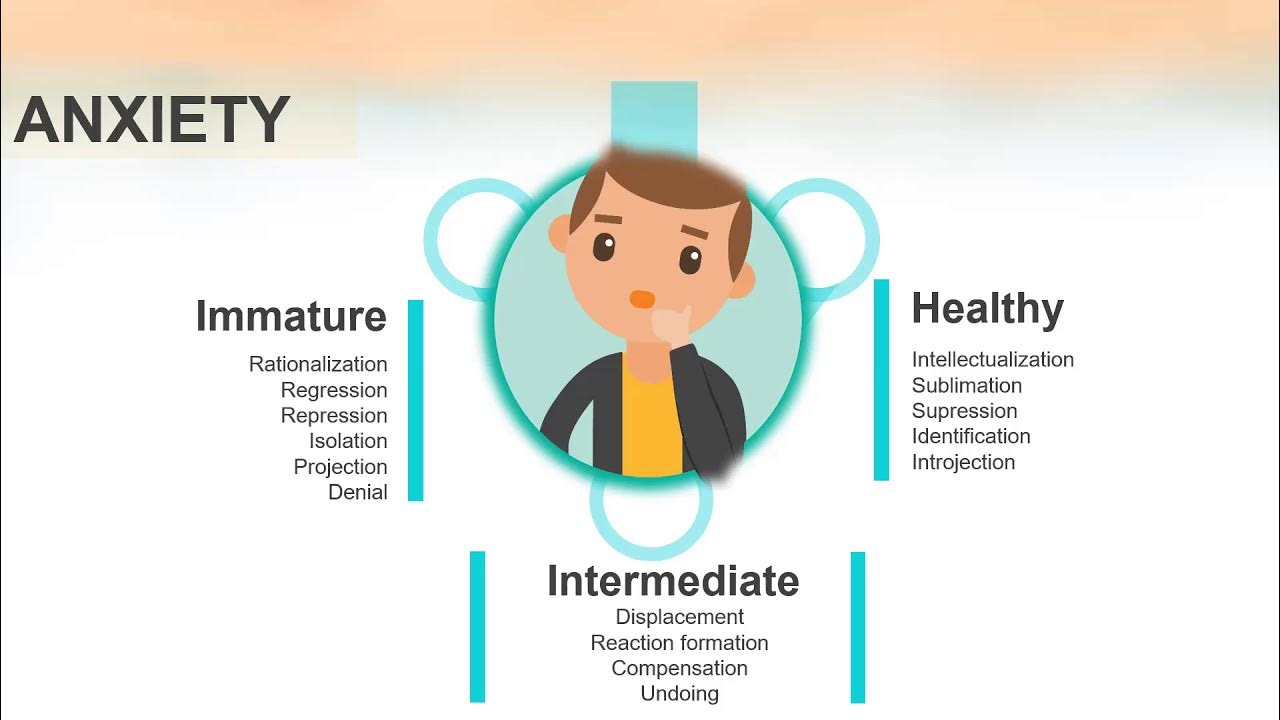Coping with Stress in Middle and Late Adolescence - Personal Development for Senior High School
Summary
TLDRThis lecture addresses coping with stress during middle and late adolescence, defining stress as a reaction to stimuli that disrupt well-being. It distinguishes between positive stress (eustress) that can enhance performance and negative stress (distress) leading to burnout. The speaker advises identifying stressors and managing stress through healthy coping mechanisms like relaxation techniques, time management, and seeking support, while cautioning against unhealthy coping methods like substance abuse.
Takeaways
- 🧠 Stress is a reaction of the mind and body to stimuli that disturb our well-being and equilibrium.
- 🏋️♂️ Athletes use 'load management' to cope with stress, and students should also find ways to manage their stress loads.
- 🚨 Stress can lead to psychological problems or mental health concerns if not managed properly.
- 🌡 The body's stress response involves hormones like cortisol, which can cause damage if stress is chronic.
- 🤔 Viewing stress as a stimulus helps us identify stressors and understand our body's reaction to challenging situations.
- 🔄 Stress can be relational, prompting us to reassess and re-evaluate situations, which can change our feelings and behaviors.
- 💪 There's a helpful type of stress called 'eustress' that can motivate and improve performance.
- 😴 Prolonged stress can lead to distress, characterized by fatigue, exhaustion, and burnout.
- 🚫 Unhealthy coping mechanisms like drugs, alcohol, and gambling can exacerbate stress and lead to more problems.
- 🌟 Healthy coping skills include creative imagery, seeking social support, relaxation activities, and time management.
Q & A
What is stress?
-Stress is a reaction of the mind and the body to a stimulus that disturbs the well-being or state of calm or equilibrium a person experiences.
Why is it important to manage stress?
-Managing stress is crucial because excessive stress can lead to psychological problems or mental health concerns that may require professional intervention.
What are stressors?
-Stressors are stimuli from the environment that cause stress, such as life-threatening or life-changing situations.
How does stress affect the body?
-Stress affects the body by causing physical reactions like feeling weaker or less capable than normal, which is why athletes need rest and load management.
What is the role of cortisol in stress?
-Cortisol is the stress hormone that elevates during stress. While short-term elevation is normal, prolonged exposure to stress and high cortisol levels can lead to permanent brain damage.
What is PTSD and how is it related to stress?
-PTSD, or post-traumatic stress disorder, is a mental health condition often experienced by soldiers after battlefield exposure. It involves elevated cortisol levels and can result in permanent brain damage, particularly in the hippocampus, affecting learning and memory.
How can changing one's perspective on stress be beneficial?
-Changing one's perspective on stress can help by allowing a person to reassess and re-evaluate the situation positively, which can change the way they feel and behave, reducing the damaging effects of stress.
What is the difference between eustress and distress?
-Eustress is a positive type of stress that occurs when one is excited or challenged and can lead to improved performance or personal growth. Distress, on the other hand, is prolonged stress characterized by fatigue, exhaustion, and burnout, which is detrimental to one's well-being.
What are some common stressors mentioned in the script?
-Common stressors include school demands, separation anxiety, future concerns about college life or relationships, family expectations, health and body image concerns, and bullying.
How is the 'stress bucket' analogy used to explain stress management?
-The 'stress bucket' is an analogy where the bucket represents one's stress level. Stressors fill the bucket, and coping skills are the faucets that release stress. Unhealthy coping skills can increase stress, while healthy coping skills help manage and reduce it.
What are some healthy coping skills for managing stress?
-Healthy coping skills include creative imagery, seeking social support, relaxation activities like progressive muscle relaxation and breathing exercises, creating a comfortable space for reflection, time management, and maintaining a balanced diet with regular exercise.
Outlines

This section is available to paid users only. Please upgrade to access this part.
Upgrade NowMindmap

This section is available to paid users only. Please upgrade to access this part.
Upgrade NowKeywords

This section is available to paid users only. Please upgrade to access this part.
Upgrade NowHighlights

This section is available to paid users only. Please upgrade to access this part.
Upgrade NowTranscripts

This section is available to paid users only. Please upgrade to access this part.
Upgrade Now5.0 / 5 (0 votes)





